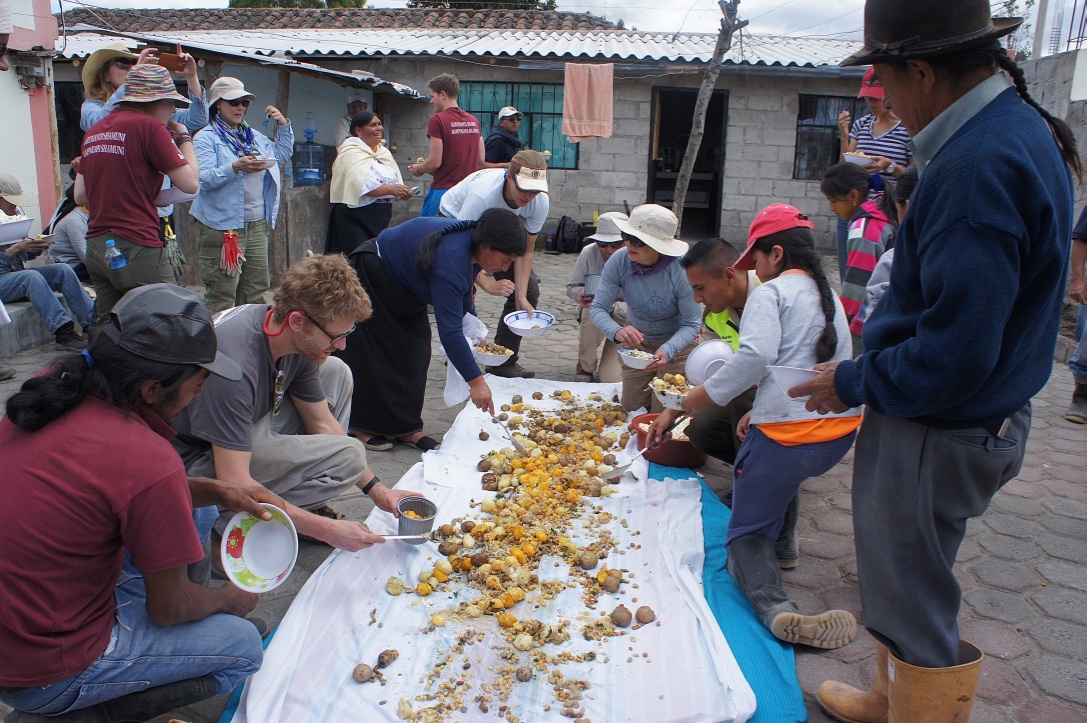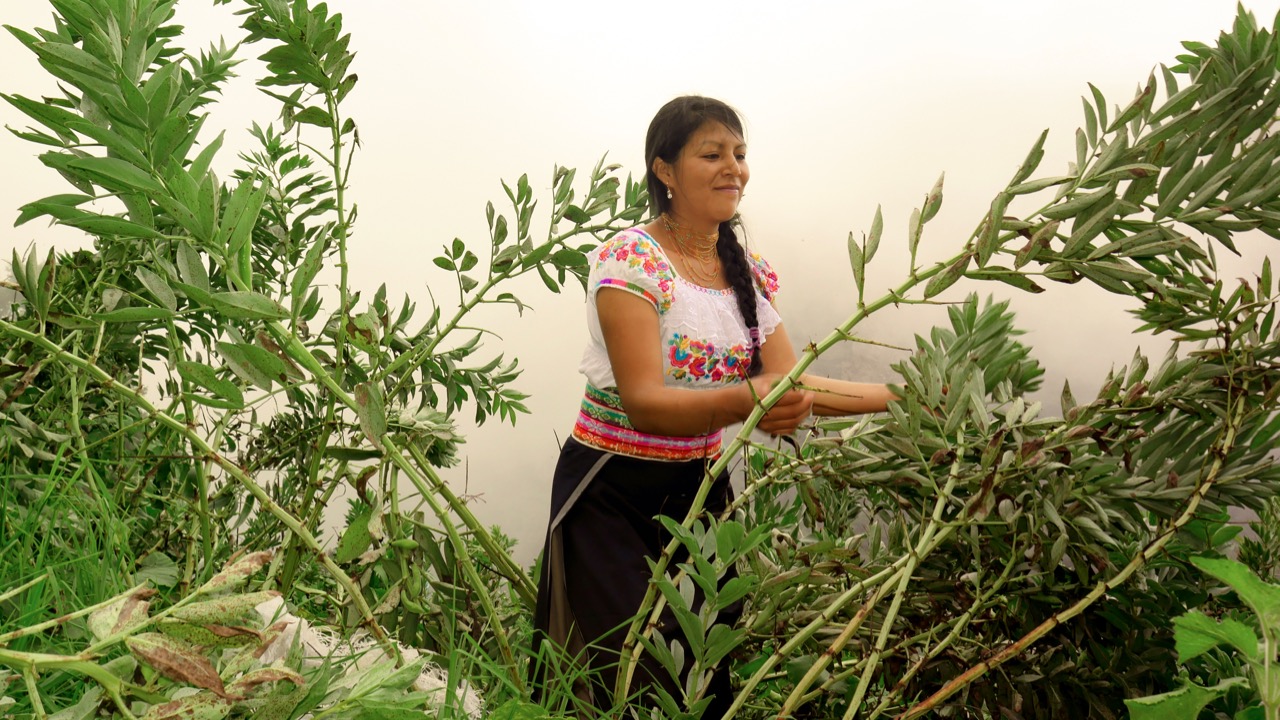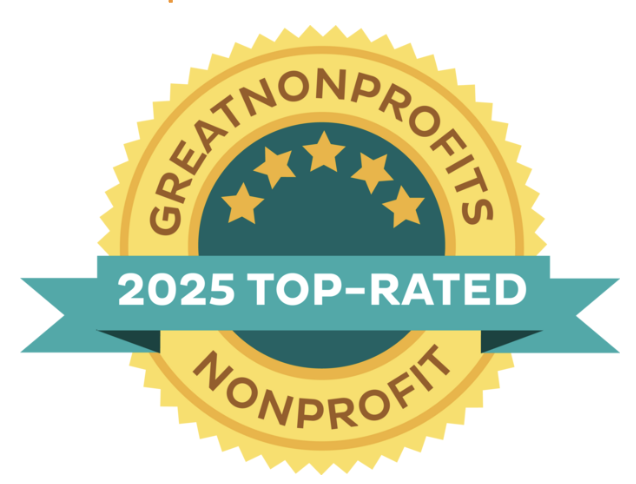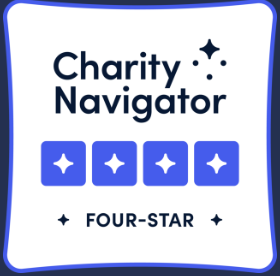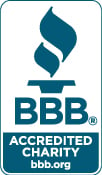Healthy Communities Volunteer Venture: Setting kids up for success
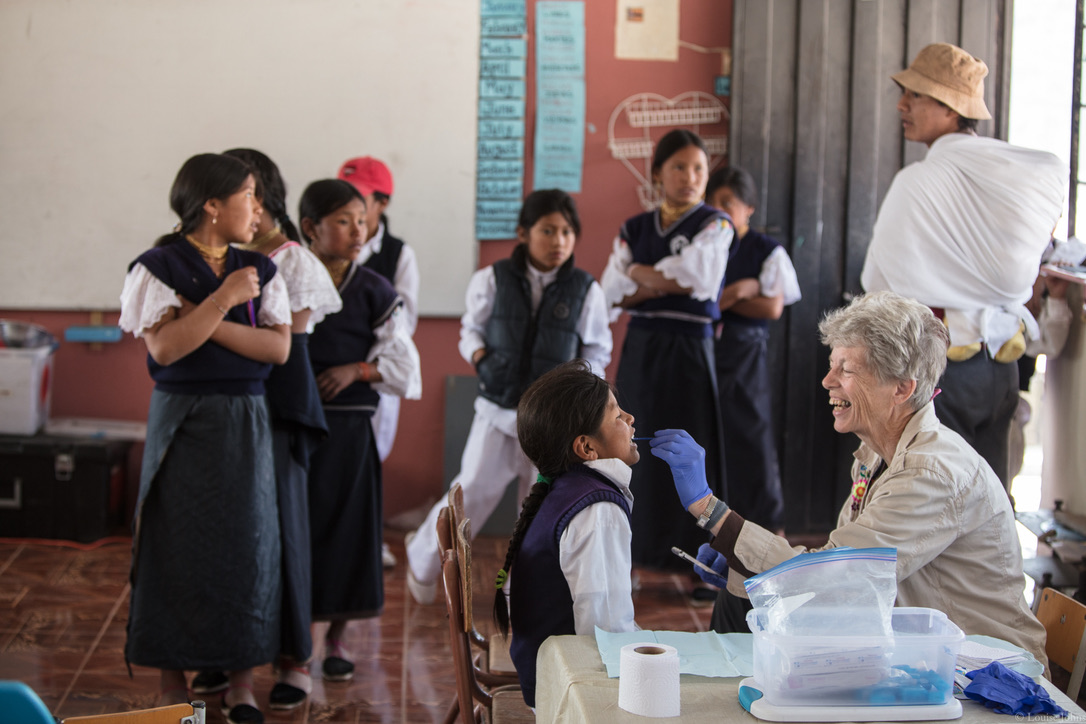
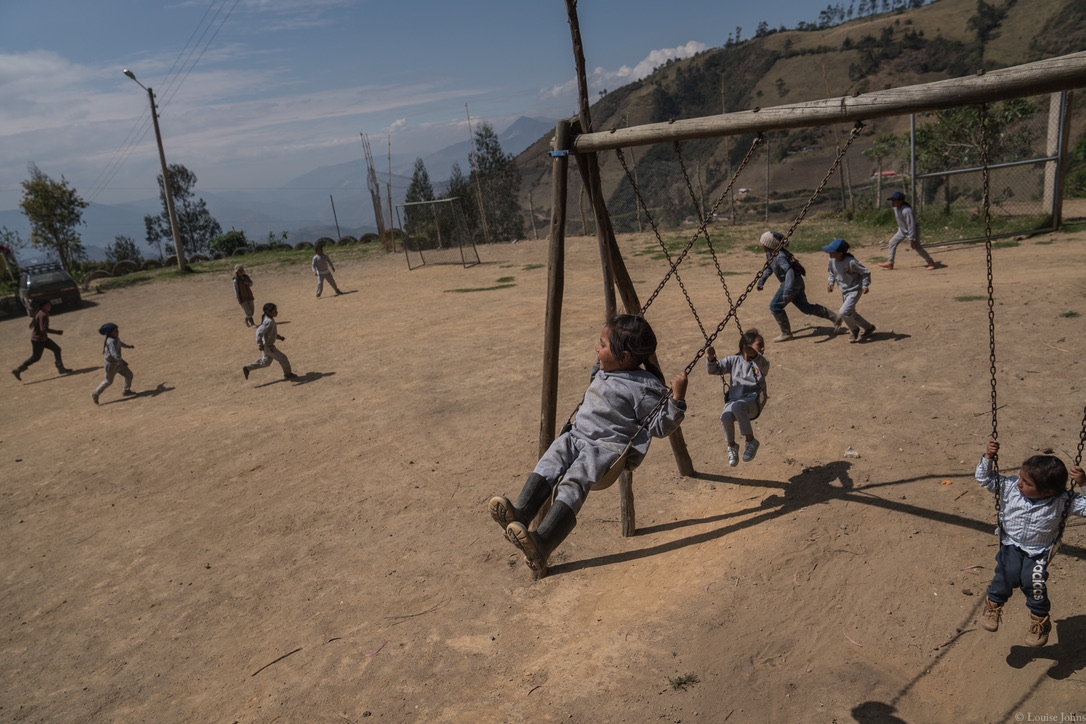
About the Venture:
| "Thank you so much. This week changed my life in a positive way, like I knew it would, but better than I possibly could have imagined. I am truly inspired by this entire week."-- Matt, volunteer from California |
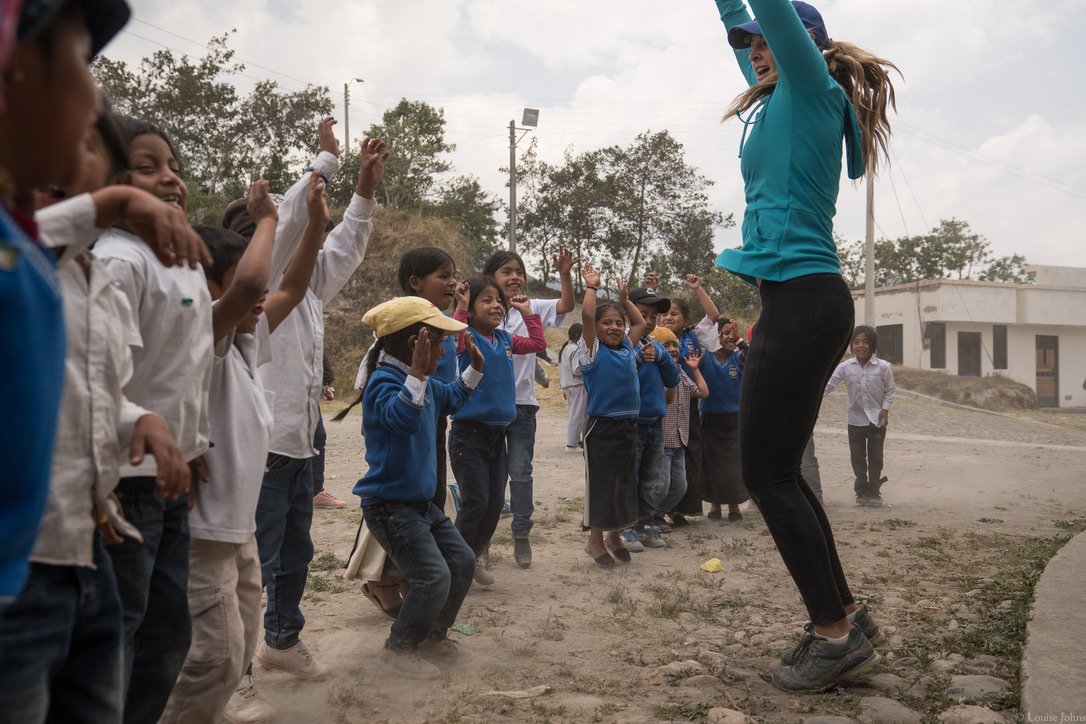
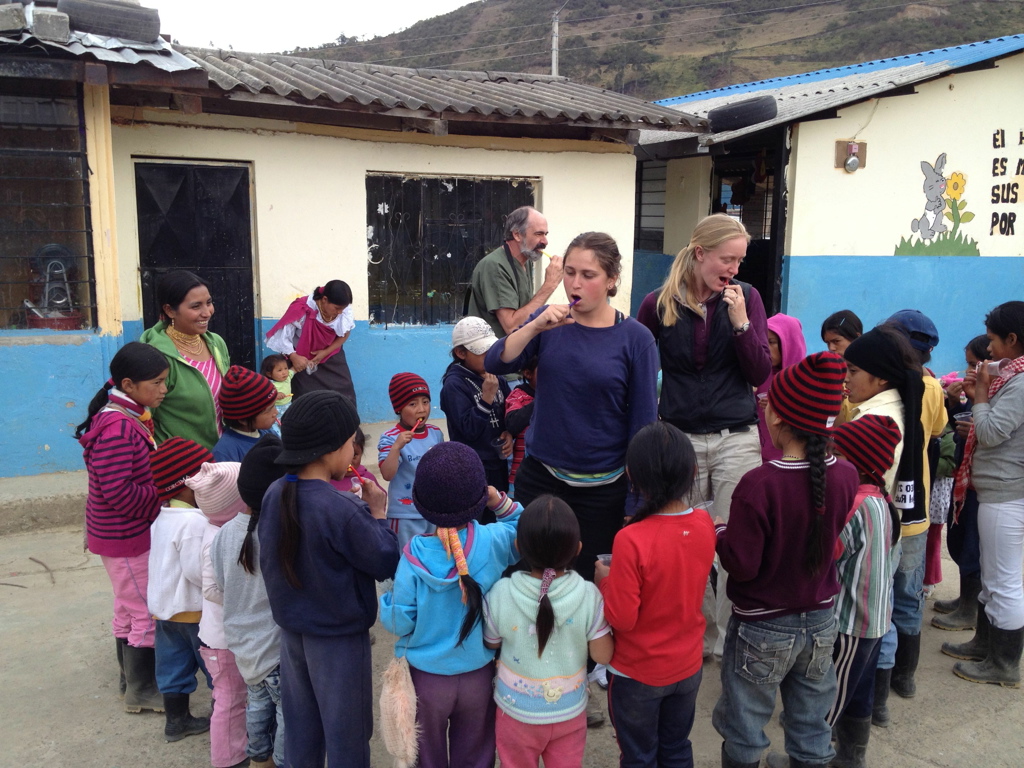
Healthy Communities Volunteer Venture
Overview
Experience life in the highlands of Ecuador while supporting public health initiatives in rural communities. Do preventative health care for schoolchildren, including dental cavity prevention andvision screening and bring fun to the health clubs at the local health centers. Learn more about local culture through a cooking class or a visit with a traditional healer. A delicious dinner and time to socialize with a great group of volunteers in a comfortable inn will cap off your day. Short, but so much deeper than a tour, this opportunity is unique in its ability to connect you with people. You will give to the community and receive much in return. (Please note that you will not be involved in providing clinical treatment to patients, but you will help with important preventative care.)
Cost: $1,685 for one week does not include airfare but does include food, lodging, transportation within Ecuador, and all planned activities (based on double occupancy. For single occupancy add $153 per week.) Discount available if paid in full by check at least 6 weeks prior to program start: $1,650 for one week; for single occupancy add $150. We provide one airport pickup on the first Saturday evening, and two options for transportation back to the airport, on the last Saturday night or Sunday morning. If your plans require different pickups or drop-offs, you will need to cover those on your own.
Did you know that your trip with Tandana is a net zero emission trip? Click  here for more details.
here for more details.
Sample Itinerary for Public Health Volunteer Venture
Day 1 (Saturday)
Fly to Quito. We will send a bus to pick up participants at the airport on Saturday evening. Most flights arrive very late in the evening.
Day 2
Welcome and orientation, plan education activities and prepare for the week's work. Participate in a language class and learn about local culture.
Day 3
Visit two rural elementary schools to do preventative health activities. Help a dentist apply sealants and fluoride to children's teach to prevent cavities. Teach children about brushing their teeth and washing their hands, and provide them supplies to be able to do so. Give anti-parasite medication and do vision screening to identify children who need optometry care. After lunch in one of the communities, learn how to make cheese with a local family.
Day 4
Visit two more rural elementary schools to do preventative health activities.
Lead a nutrition cooking class with the pregnant mothers club at a local health center and provide prenatal vitamins. Share the dinner you have prepared.
Day 5
Visit two more rural elementary schools to do preventative health activities. After lunch with the community, then tour the vertical birthing unit at the Otavalo hospital while hearing from midwife Rosa Colta about her important work there.
Day 6
Visit two more rural elementary schools to do preventative health activities. After lunch, tour a medicinal garden and watch a demonstration of Andean healing techniques.
Day 7
Visit two more rural elementary schools to do preventative health education activities. After lunch, visit the midwives' center in Cotacachi and then shop in the leather market.
Day 8 (Saturday)
Shop in the world-renowned Otavalo market, enjoy a fun outing together as a group, such as to Mojanda Lakes or the Lechero tree. You may fly out on late night flights or spend one more night at the hotel.
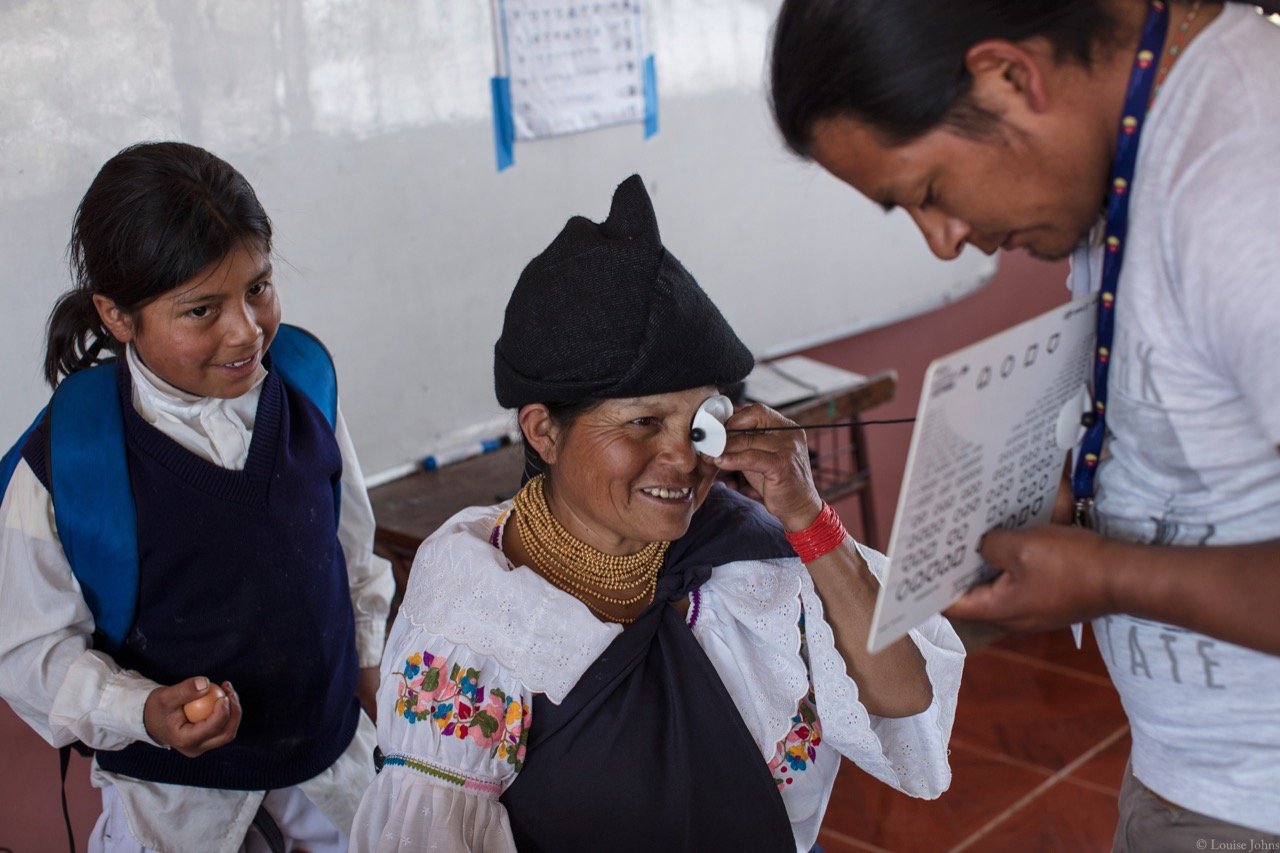
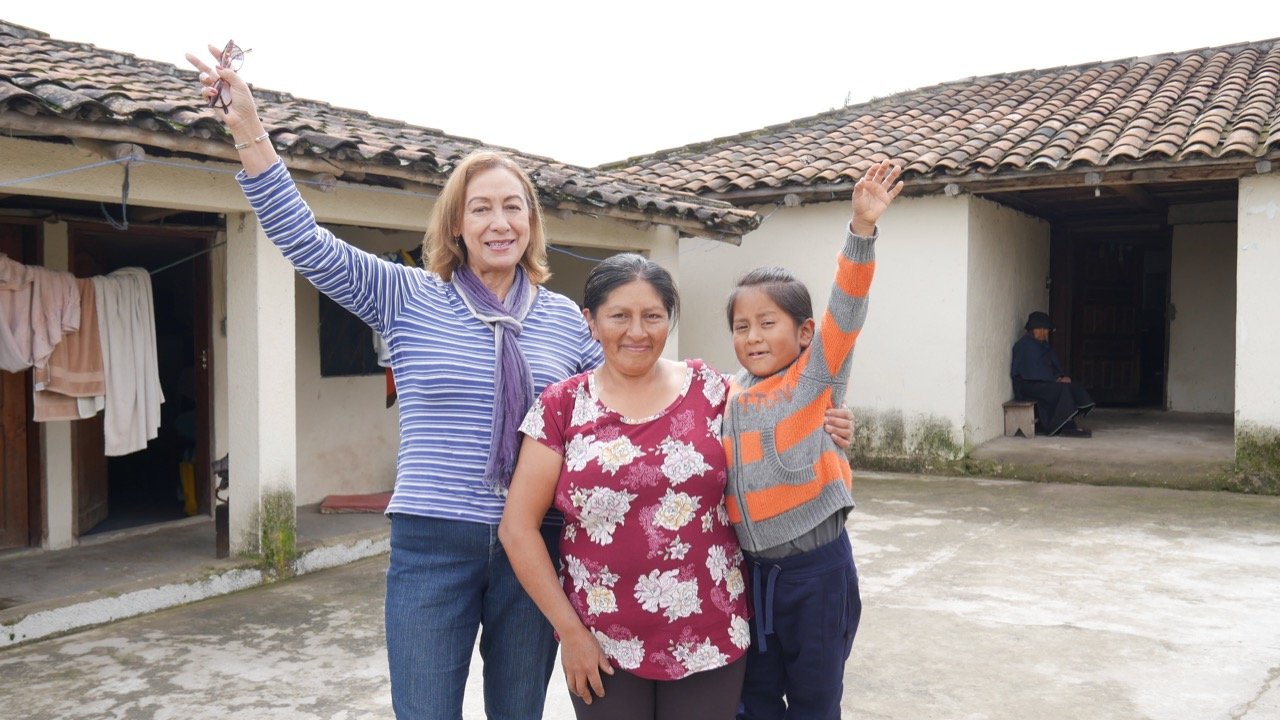
Through our health care program in Ecuador, The Tandana Foundation aims to improve rural community members’ access to basic health care and support local rural health professionals in caring for their population. We support the local health centers with needs, provide patient advocacy and assistance navigating the public health system, support clean drinking water projects, and do preventative health education activities.
Community Health and Well-being Program
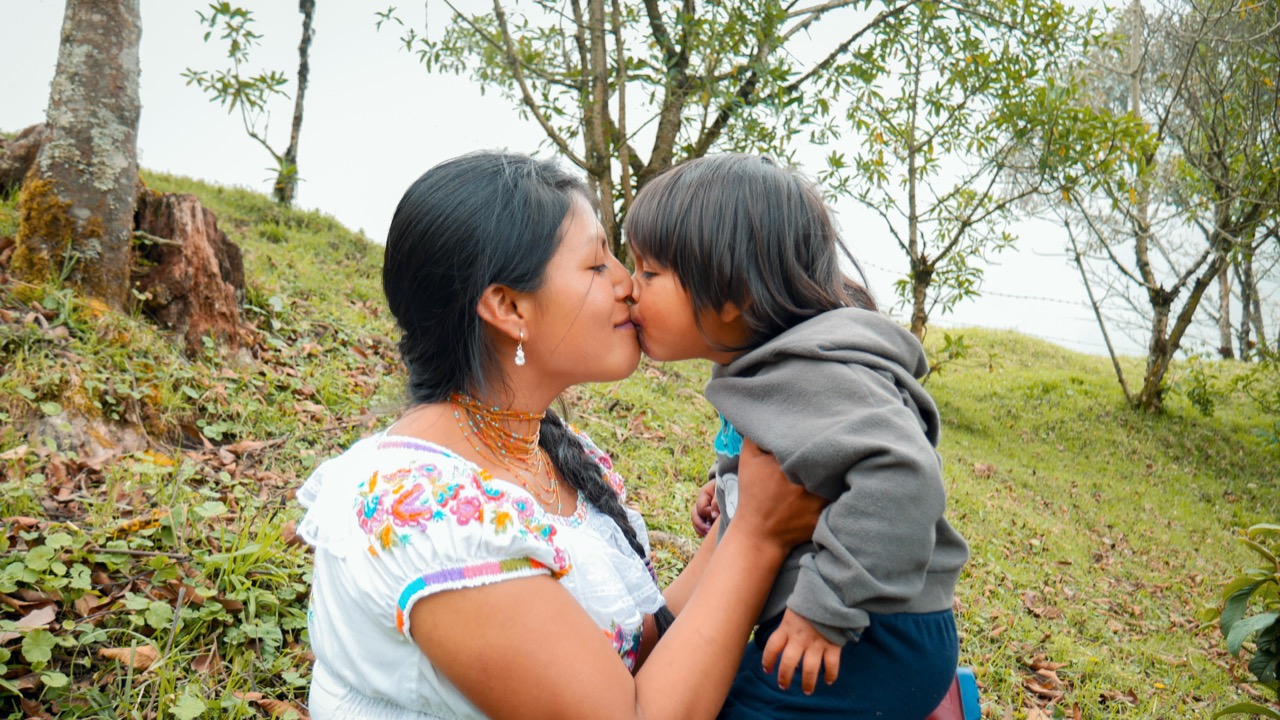
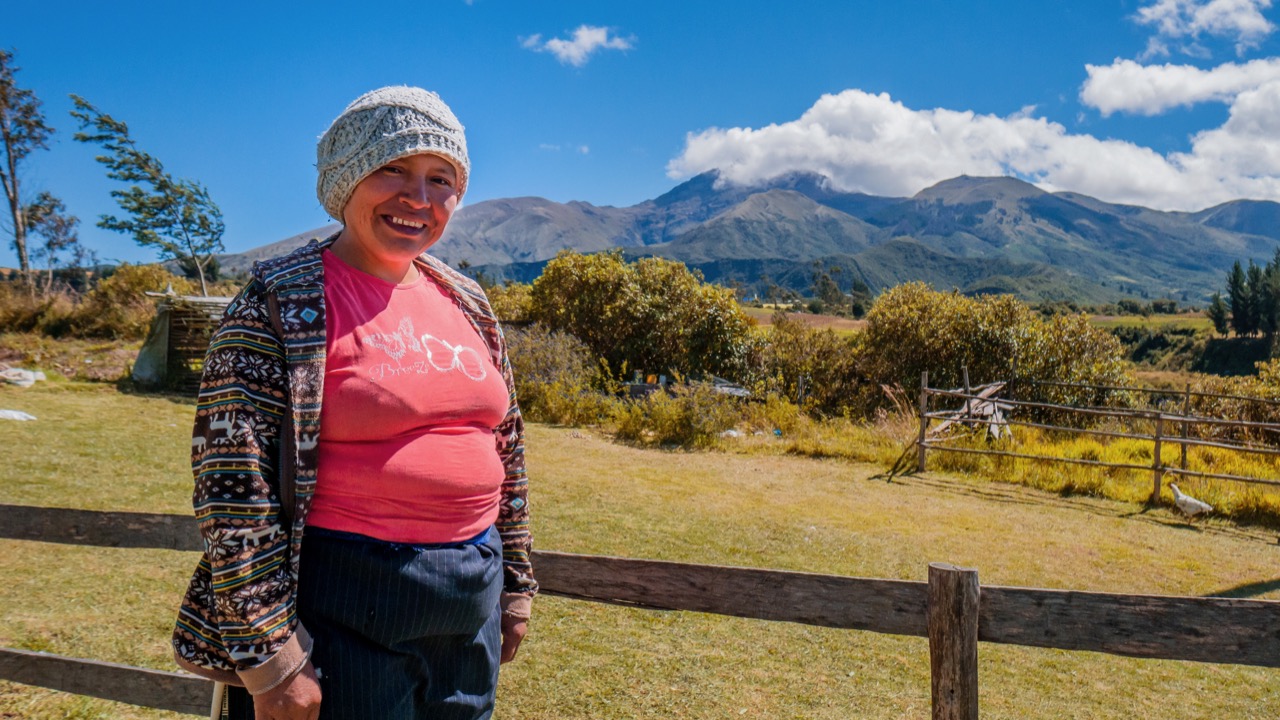
One integral part of our health work is the Community Health and Well-being Program. Community members contact us when they have medical issues and need help finding and accessing the resources needed for treatment. Our Community Health and Well-being Coordinator communicates closely with the patients and advocates for them in the public health system. It is our goal that, through this process, patients learn how to use the system on their own.
Through many appointments, first at the rural health center, then at the hospital, and sometimes at specialized hospitals in the capital city of Quito or with other organizations such as Vista Para Todos or the Lions Club, patients access the care they need. Whether they need lab tests, specialists, surgeries, or eyeglasses, our Community Health and Well-being Program Coordinator works tirelessly to help them access the resources that are available. We work primarily with the Ministry of Health, and also with other foundations and private options when the public system does not offer what a patient needs.
Unfortunately, access to health services is very difficult for people living in rural communities for the following reasons:
- Difficulties understanding the procedures to be followed
- Transportation challenges
-
Communication gaps among the different levels of care
-
Difficulty scheduling appointments and long wait times
-
Cultural differences, language barriers, and racism
Our staff works with patients to navigate and overcome these challenges so that they can benefit from the services to which they are entitled as citizens of Ecuador and improve their health. Our goal is to ensure that once patients are on track and learn how to navigate the health system, from that point forward they are able to take advantage of its resources on their own.

Scroll down through the story map below to learn about the communities we partner with and see their locations on a map.
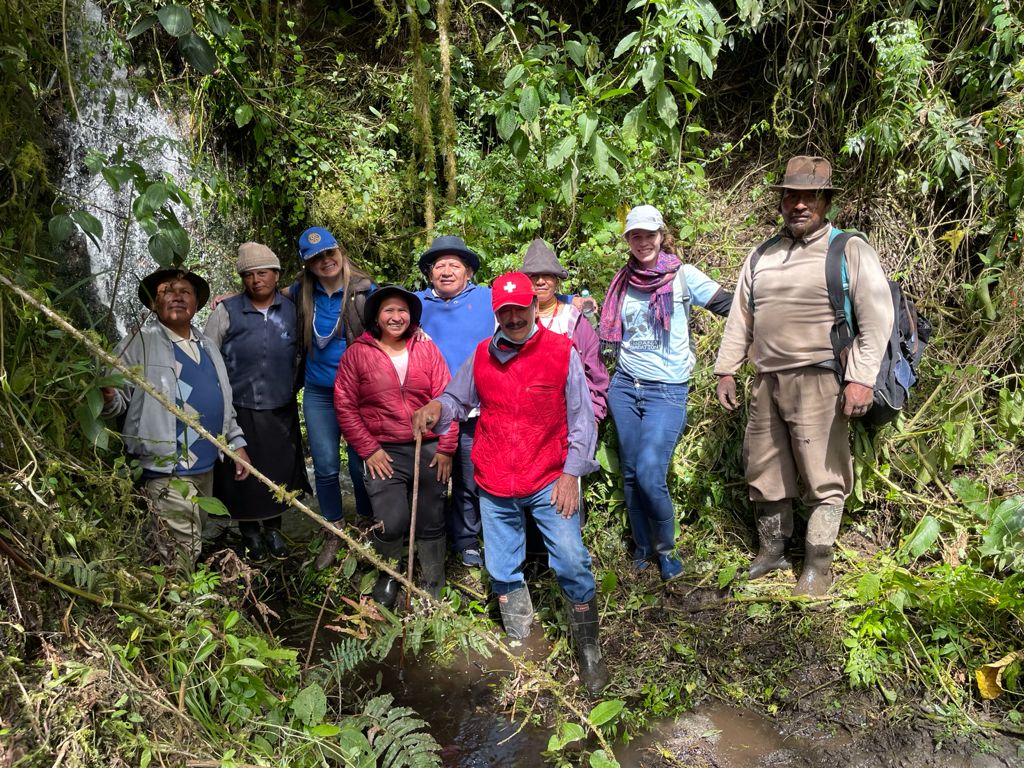
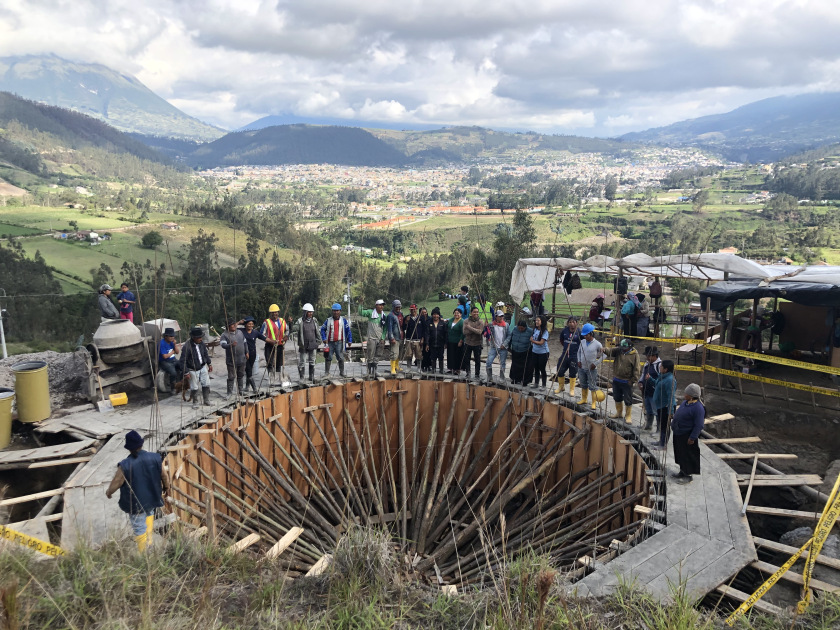
Public Health Volunteer Ventures Frequently Asked Questions
Do volunteers need to have medical backgrounds (e.g., nurse, physician) or skills? What opportunities are there for people without medical training?
Volunteers do not need to have medical backgrounds. We do not provide clinical treatment during these programs. You will be participating in a variety of activities that do not require special skills. Just bring your enthusiasm and willingness to learn.
What are the costs to the communities of participating/hosting the volunteers?
Typically how large is the group of volunteers?
The groups are usually 10-15 volunteers with 4-6 Tandana staff.
Are volunteers required to speak Spanish? If not, how are interactions facilitated?
We have many volunteers who don’t speak Spanish. We offer basic (and fun) Spanish and Kichwa lessons during the trip to help volunteers learn at least enough to give basic instructions and greet people. Tandana staff translate for the group.
Do I need vaccinations to go on this trip?
COVID-19 vaccinations are required. The CDC recommends vaccinations against Hepatitis A, typhoid, tetanus-diphtheria and measles. Yellow fever is recommended for other parts of Ecuador but is not necessary in the mountains where we work. Other than COVID-19, vaccinations are up to your own discretion.
I've heard about the Zika virus. Should I be concerned for my health?
What are the accommodations?
Will my electronic devices work in Ecuador?
Yes, Ecuador uses the same electrical currents and plugs as the United States does, so you don't need a special adapter.
We'll send you a "welcome" packet a month or so before your departure, which includes a suggested packing list.What should I pack to take on this trip?
What is the daily schedule like?
Each day we depart the hotel at 8 am and travel (from 15 minutes to an hour and a half) to a different community to work. After lunch, we visit community members, meet students, a shaman, a master weaver, or indigenous leaders, or hike to sacred sites such as the Peguche waterfall and the Lechero tree. In the evening, we sample one of the many delicious dining options in Otavalo, and have a short reflection on the day's experiences.
All of Tandana's volunteer programs are led by a team of Program Coordinators who have first-hand knowledge of the region, speak both Spanish and English, have expertise in experiential education and group leadership, hold WFA (Wilderness First Aid) or other certifications that have prepared them to handle emergencies, and are caring and capable individuals. Our permanent local staff is always on hand to help with translation, activities, logistics, and anything else to make sure the volunteers' experience is the best it can possibly be. See here for bios of some Program Coordinators.Who leads the groups of volunteers? Who do I turn to when I need help?
What if I can't find the answer to my question on this FAQ page?
